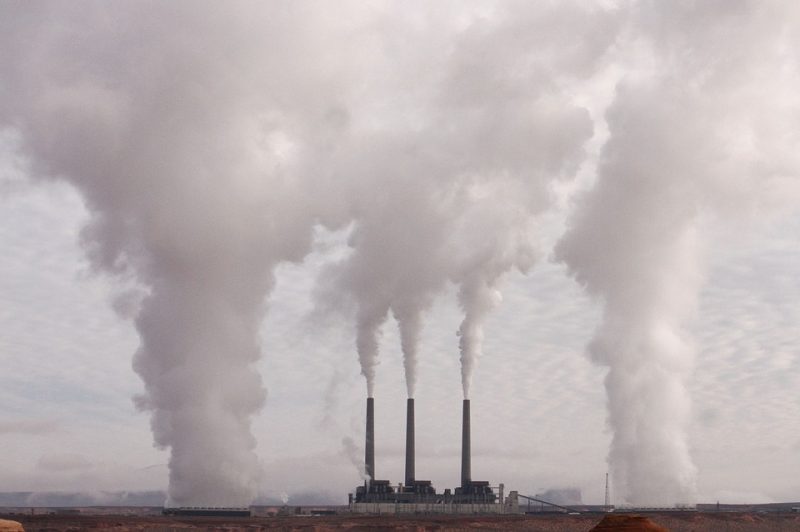latest
“All-out offensive” planned on Massachusetts climate bills

By Colin A. Young
With the time left to make a deal ticking away and other matters jockeying for attention, climate policy advocates are mounting an effort — one group declared it “an all-out offensive” — to keep pressure on the group of lawmakers negotiating a climate bill to produce a final product soon.
Three senators and three representatives were appointed in early August to reconcile the differences between climate bills passed by the Senate and House earlier this session, but no compromise agreement has been reached almost five months later and time will run out when the session ends Jan. 5.
“Given the significant economic benefits of clean energy, passing the bill and getting it on the governor’s desk would be a great holiday present to everyone in the commonwealth,” Jeremy McDiarmid, vice president for policy and government affairs at the Northeast Clean Energy Council, said Wednesday.
The Senate overwhelmingly passed a package of climate bills in January that called for net-zero carbon emissions by 2050, and set deadlines for the state to impose carbon-pricing mechanisms for transportation, commercial buildings and homes. The House, which had earlier passed a $1.3 billion climate adaptation bill, in July passed its response to the main Senate proposal, addressing the 2050 emissions reduction roadmap, solar energy net metering, grid modernization, workforce development, energy efficiency, and municipal electric and light plant clean energy targets.
Eighty-one state lawmakers rang in 2019 and the start of the current two-year legislative session by resolving to pursue a suite of climate policies, including moving the state to net-zero carbon emissions by 2050. At the start of 2020, Gov. Charlie Baker, House Speaker Robert DeLeo and Senate President Karen Spilka all declared their support for net-zero carbon emissions by 2050 on the same day in January. But that shared goal, one that climate activists have spent years clamoring for, still has not been carved into statutory stone.
“We are unleashing an all-out offensive via phone, email, and twitter, to ensure Massachusetts advances this crucial climate legislation,” 350Mass wrote to its supporters in a call to action earlier this week. “Our Reps and Senators must demand that the bill be voted out of committee this week, before the holiday, to allow Governor Baker the time to sign the bill before the end of the legislative session on January 5th.”
If the conference committee doesn’t produce a compromise bill this session, McDiarmid said, “It would stifle the momentum that we have with an administration in Washington that is making climate a top-line priority. I think it would send a signal to the energy industry that we need to restart the whole process and that would lose valuable time.”
He added, “I am optimistic that the Legislature will take advantage of this opportunity and will get something done.”
Mark Kresowik, eastern region deputy director at the Sierra Club, said he is “hopeful” that the Legislature will finish the job before the two-year session expires and is particularly interested in seeing a final bill that advances a net-zero stretch building code and environmental justice provisions, and eliminates the burning of biomass as an option for meeting renewable energy goals.
“Given the urgency of the issue, everything that is going on with the pandemic and those that are struggling to afford energy and housing or are stuck at home, it is abundantly clear that, particularly for those communities’ constituents, we need to move forward with avoiding the worst impacts of climate disruptions but also ensuring that those homes are healthy, that they’re safe, and also that we’re not burning gas and other dirty fuels inside those buildings going forward,” he said.
If the conference committee is not able to produce a compromise bill and the Legislature doesn’t send a climate policy bill to Baker’s desk by the end of the session, it would mean “failing to support” the people who are dealing with the worst impacts of both climate disruption and the pandemic at a critical moment, Kresowik said.
“There’s a lot that the administration is teeing up … but there’s only so much they can do without funding to particularly help those who are most overburdened and underserved in our communities,” he said.
The Baker administration is planning to release its 2050 Decarbonization Roadmap and the 2030 Clean Energy and Climate Plan by the end of this month. The 2050 Roadmap will be used to set a 2030 emissions reduction target by the end of this year, the administration has said. The Department of Public Utilities, with an eye on the state’s goal of significantly reducing its greenhouse gas emissions over the next 30 years, recently launched its own investigation into the future of the natural gas industry and its role in “ensuring a low-carbon future” for Massachusetts.
McDiarmid said it is important that the Legislature codifies the target of net-zero emissions by 2050, commits to environmental justice provisions that attempt to ensure that everyone in Massachusetts benefits as the state shifts toward a clean energy economy, makes some alterations to state solar policy, and continues progress on offshore wind authorizations.
“The 2020s need to be a decade of action and next year is going to be a huge year for moving the needle on reducing emissions, moving to that transition to clean energy and taking real action to drive the clean energy economy,” McDiarmid said. “I think the bill that’s in conference right now is a very real opportunity to hit the ground running in 2021 and signal that commitment to a science-based approach for reducing our emissions.”
Ben Hellerstein, director of Environment Massachusetts, said his organization is already starting to think about legislation it wants to work on next session, like accelerating the state’s pace towards 100 percent renewable energy. He said he wants to see a conference committee bill that includes appliance efficiency standards, a ratcheting up of the state’s renewable portfolio standard, and language from the Senate bill that deals with disclosure of energy use in large buildings.
“We have a real opportunity in the next couple weeks here in Massachusetts before the end of the session to make progress towards a cleaner and more energy-efficient future, so we hope that leaders in the House and Senate will do everything they can to get a bill over the finish line,” he said. “And we hope they will keep in mind that regardless of what happens, we are not done with this issue on Jan. 5.”






Mortis Maximus
December 26, 2020 at 5:22 pm
Bunch of brain dead frauds these people are. The cost of heating your home or cooking your family a meal, maybe taking a hot shower will become luxuries for many. If green energy is the end all be all that were being told, then why is the cost of these plans being channelled to the taxpayer? If these energy plans are so great then private monies would be flooding into them. Instead people are investing in Bit-Coin Crypto and marijuana stocks. The government is not looking to save us people!